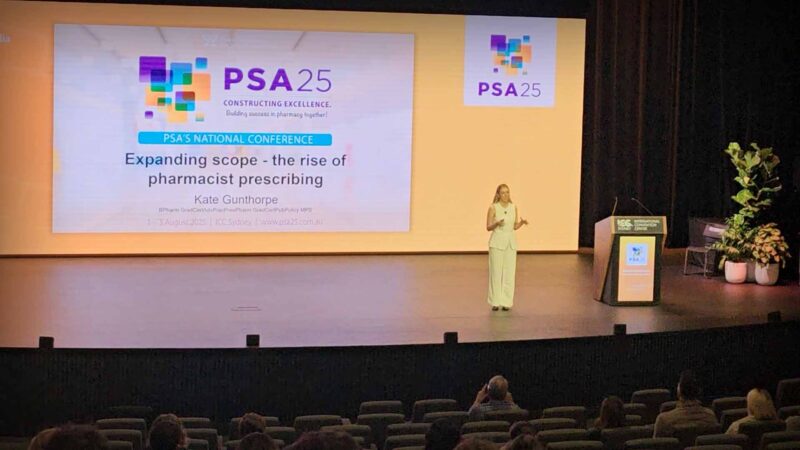STILL SEEKING OUTCOMES AFTER 6TH STOMA APPLIANCE SCHEME SCHEDULE REVIEW:
LOWER QUALITY OF LIFE AND OTHER HEALTH IMPACTS EXPERIENCED BY OSTOMATES
Matt Dalton
Chair, Stoma Industry Association
SEGMENT RELEASE
Filmed in Sydney, New South Wales | December 2024
A stoma is a surgically created opening in the abdomen to remove body waste, such as faeces and urine. Many conditions can require a stoma, including colorectal cancer, inflammatory bowel disease (IBD), Crohn’s disease and ulcerative colitis, bladder cancer, injury trauma, and congenital defects.
50,000 Australians have undergone the trauma and challenge of having a stoma inserted. Whilst the Australian Government invests in the appliances and products they need through the Stoma Appliance Scheme (SAS), this list is dated and doesn’t include as many of the products available in other countries. A new report commissioned by the Stoma Industry Association (SIA) shows Australia lagging countries such as the United Kingdom, Canada and Spain in supporting ostomates (people with a stoma).
The report found that the Quality of Life (QoL) for Australian ostomates is lower than other developed nations and the general community. The reason for this includes:
- Australia reimburses fewer products on the Stoma Appliance Scheme (SAS). The UK provides 60 per cent more, for example.
- Australian spending as a percentage of GDP is five times smaller than Canada, and three times smaller than the UK.
- There are fewer specialist nurses to support the patient population. According to the Australian Association of Stomal Therapy Nurses, “A Stomal Therapy Nurse (STN) specialises in the management of patients with faecal and urinary diversions. In addition, the STN is an expert in the management of difficult and draining wounds, fistulae, gastrostomies, acute and chronic wounds and associated skin care. In short, STNs can assist with advice and management of any stoma and wound issue, and may also provide continence advice.”
The report also details the daily challenges of Australian ostomates:
- 1 in 5 stoma patients isolate themselves from others
- 65 per cent of patients say their ability to work is negatively impacted
- 3 in 5 patients experience a reduction in intimacy
Stoma appliances and supporting products are subsidised by the Commonwealth funded scheme.
There have been five reviews of the SAS, none of which have been released. The current (sixth) review released earlier this year by the Australian Government.
Australian Health Journal spoke with the Stoma Industry Association Chair, Matt Dalton about the same access to products needed by 50,000 Australian ostomates and the quality of life as patients overseas.
You Might also like
-
Pharmacist Prescribing Model gets further support from state health
A full scope pharmacist prescriber model allows pharmacists to independently prescribe medicines within their professional competence, without requiring prior doctor authorisation. It extends pharmacists’ role beyond dispensing to include assessment, diagnosis of minor and chronic conditions, initiation and modification of therapy, and ongoing patient monitoring. This model integrates pharmacists into primary care teams, aiming to improve timely access to treatment, reduce pressure on general practitioners, and enhance continuity of care. Pharmacists use their clinical knowledge, patient records, and collaborative pathways to ensure safe prescribing. The model emphasises training, regulation, and accountability to maintain high standards of patient safety.
-
Gavin Fox-Smith talks Medical Technology
Former Johnson & Johnson ANZ Managing Director, Gavin Fox-Smith on working in large & small MedTech companies
-
New bar for cosmetic plastic surgeon accreditation
The newly established Australian and New Zealand Board of Cosmetic Plastic Surgery (ANZBCPS) has highlighted a concerning lack of confidence among cosmetic surgery patients in selecting qualified surgeons based on available online information.
In response to these challenges, the ANZBCPS has introduced the Board Certified Program to ensure patients have access to trustworthy information about qualified surgeons. Participating surgeons may use the title “ANZBCPS Board Certified,” indicating they meet stringent quality and safety standards, and adhere to the continuing professional development (CPD) requirements set by AHPRA.



